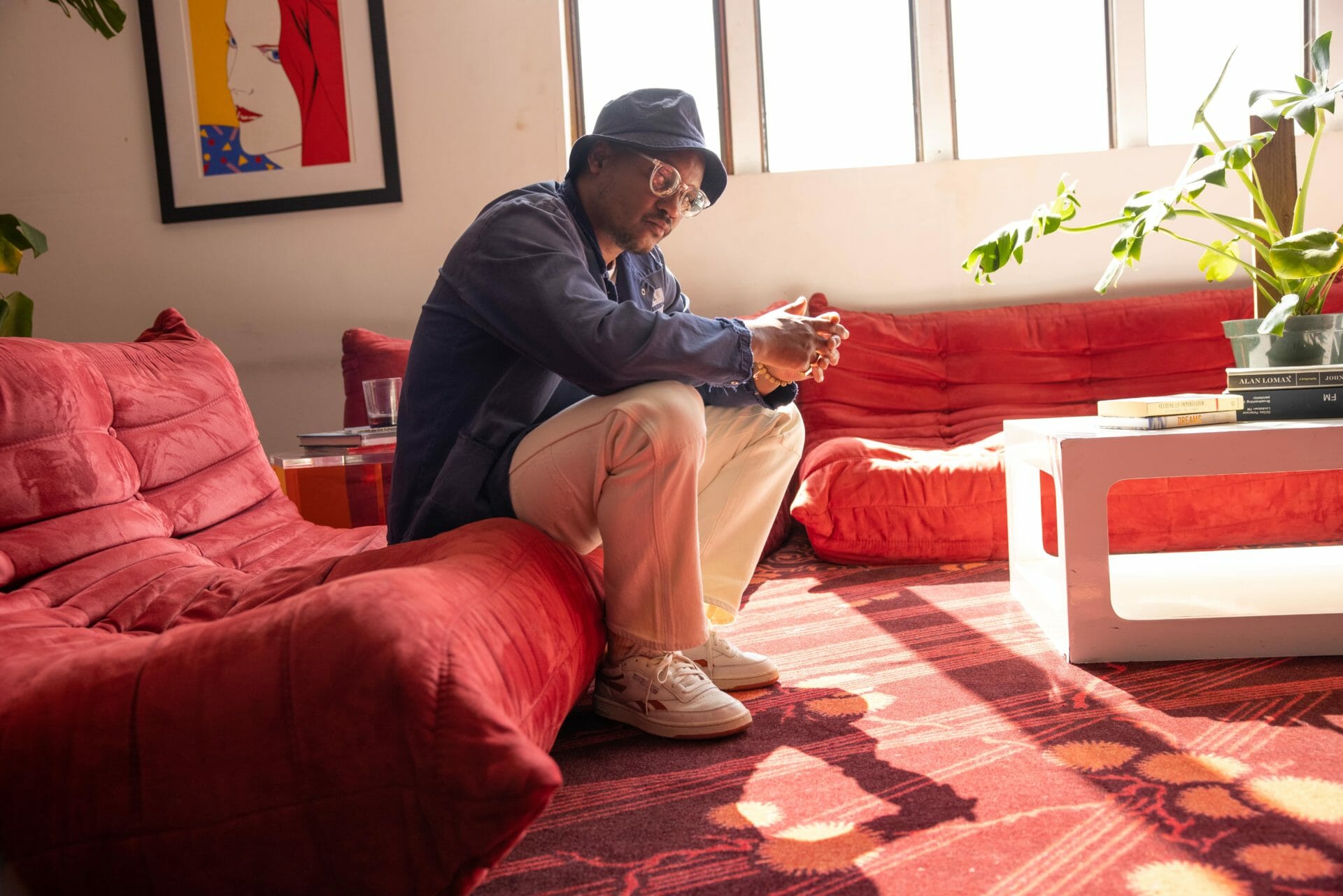Spotlight: Son Little

photo credit: Cynthia Perez
***
“The duality of anything—I’m addicted to it,” neo-soul searcher Aaron Livingston says. He’s reflecting on “Deeper,” a chrome-plated slow-burner from Like Neptune, his fifth album under the name Son Little: “I like sci-fi/fantasy stuff, and there’s a little bit of a cold Blade Runner [quality] to it at its base. But it’s like, ‘How can I turn that into something warm and emotional?’”
That question is essential to Like Neptune, a project that is both expansive in passion and insular in production— psychedelic and soulful, but in the kind of rainy-day way where you just want to meditate with your headphones on. There’s also a thematic duality at play: Livingston, who restarted therapy in 2017 following a car accident and arrest, wrote these songs after discovering a radical technique called Internal Family Systems, which essentially allows you to unlock younger, wounded parts of your psyche.
“There are a lot of different types of therapists, and it occurred to me: ‘I need one that’s kinda hippie-ish, one that’s curious about new things,” says the Philadelphia native, who’s previously collaborated with The Roots, Mavis Staples and Portugal. The Man. “I was lucky that I found someone who is that way. She never told me about Internal Family Systems. It never came up. I was having a session one day, and it just happened. [Laughs.] We just started doing it. When I read the main book attached to the platform—the description of how that guy came to practice— it was exactly like that. He was talking to a patient who was in a lot of distress, and he just kind of sensed, ‘The person who is in this room with me isn’t this grown version of this person.’ From that, he discovered, ‘We can directly address this hurt child who’s reacting right now.’”
During the pandemic lockdown, Livingston also explored past pain in other ways—stumbling upon 72 boxes of childhood writing books, including one in which he directly addresses being sexually abused around age five. It was a heavy period of self-examination, but the songwriter eventually found the sense of healing that he filtered into Like Neptune—an often somber but frequently cathartic record created—in part while staying at a cabin in upstate New York. Drawing from his typically broad sonic canvas, Livingston developed many of the album’s tracks from minimalist beats made on iPad apps.
“Over the years, I’d struggled with trying to bring things on the road with me and setting up in my hotel room,” Livingston says. “And 25 percent of the time was spent just hooking everything up. I’d always end up frustrated with it. I realized that just wasn’t working for me, and I started poking around to see how much I could do with an iPad. I’d always done that kind of stuff with the early iOS apps, like EasyBeats and GarageBand. I started to dig in with the iPad on a bunch of different apps, [including] Native Instruments’ iMaschine. It’s laid out like an MPC, which, for me, is kind of everything. That was my beginning as far as beat-making goes, so anything that reminds me of that usually works.”
By the winter 2020, he’d accumulated roughly 150 beats—some of which, like “Deeper,” made it onto Like Neptune with little embellishment. “That one’s really as it was in the iPad,” he says. “There’s a bit of a Prince influence—and there’s something about the guitar that turns a little bluesy, which is odd, even to me. When I listened to it, I thought, ‘That’s weird, but it works.’ It’s interesting how often you’re hearing this complex thing, but, when you analyze it, you realize, ‘There’s not much here. There are two or three things doing everything.’ [This album] was a lot less exacting in general for me, production[1]wise. For a long time, I’d do a direct guitar and think, ‘I’ll do that over,’ but this time, it was more about catching the ideas as they came and being content with what they were in the beginning.”
Some moments feel disarmingly intimate: On “6AM,” Livingston belts about romantic longing over some woozy synths and threadbare percussion; the gospel-tinged “Didn’t Mean a Thing” is mostly just his voice, pleading in glorious rasp about gratefulness, chased by bursts of organ and reversed electric guitar. Other moments are more notably cinematic, like the opening funk groove of “Drummer” and the spacey finale of “What’s Good,” which Livingston built from lengthy loop experimentation in the digital audio workstation Ableton Live. “That song, at one point, was like 20 minutes,” he says. “And I just slowly cut it down. I probably did more with that than the rest of the record combined. It was really liberating.”
The same could be said about the entire process of crafting Like Neptune, therapy included.
“There are a bunch of different levels,” he says. “Some people might just dive into everything. But I think, for most people, you’re gonna stick your toe in first, and then maybe you dangle your feet, and then you go onto your knees on the steps. It’s asking a lot for everyone to be so open and trusting that they just throw caution to the wind right away. But I’ve come to see my initial reluctance and be a little kinder to the part of myself that was wary.”




















